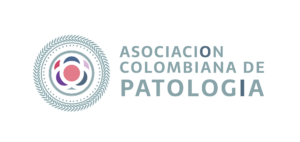- Estrellas (0)
9 Descargas
Propietario: admin
Versión: 1.0
Última Actualización: 23-08-2021 6:06
Artificial intelligence for advance requesting of immunohistochemistry in diagnostically uncertain prostate biopsies
Andrea Chatrian 1,2 ● Richard T. Colling3,4 ● Lisa Browning4,5 ● Nasullah Khalid Alham1,2 ● Korsuk Sirinukunwattana 1,2 ● Stefano Malacrino 1,2,3 ● Maryam Haghighat 1,2 ● Alan Aberdeen6 ● Amelia Monks1 ● Benjamin Moxley-Wyles 7 ● Emad Rakha8 ● David. R. J. Snead9 ● Jens Rittscher1,2,5,10 ● Clare Verrill 3,4,5 Received: 20 February 2021 / Revised: 23 April 2021 / Accepted: 27 April 2021 / Published online: 20 May 2021 © The Author(s) 2021. This article is published with open access
Abstract
The use of immunohistochemistry in the reporting of prostate biopsies is an important adjunct when the diagnosis is not definite on haematoxylin and eosin (H&E) morphology alone. The process is however inherently inefficient with delays while waiting for pathologist review to make the request and duplicated effort reviewing a case more than once. In this study, we aimed to capture the workflow implications of immunohistochemistry requests and demonstrate a novel artificial intelligence tool to identify cases in which immunohistochemistry (IHC) is required and generate an automated request. We conducted audits of the workflow for prostate biopsies in order to understand the potential implications of automated immunohistochemistry requesting and collected prospective cases to train a deep neural network algorithm to detect tissue regions that presented ambiguous morphology on whole slide images. These ambiguous foci were selected on the basis of the pathologist requesting immunohistochemistry to aid diagnosis. A gradient boosted trees classifier was then used to make a slide-level prediction based on the outputs of the neural network prediction. The algorithm was trained on annotations of 219 immunohistochemistry-requested and 80 control images, and tested by threefold cross-validation. Validation was conducted on a separate validation dataset of 222 images. Non IHC-requested cases were diagnosed in 17.9 min on average, while IHC-requested cases took 33.4 min over multiple reporting sessions. We estimated 11 min could be saved on average per case by automated IHC requesting, by removing duplication of effort. The tool attained 99% accuracy and 0.99 Area Under the Curve (AUC) on the test data. In the validation, the average agreement with pathologists was 0.81, with a mean AUC of 0.80. We demonstrate the proof-of-principle that an AI tool making automated immunohistochemistry requests could create a significantly leaner workflow and result in pathologist time savings.
